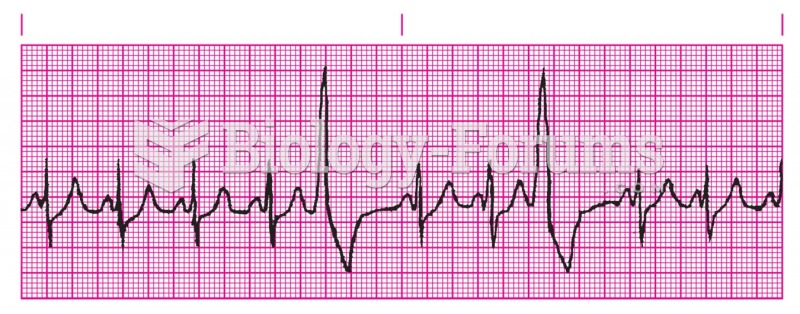|
|
|
Patients should never assume they are being given the appropriate drugs. They should make sure they know which drugs are being prescribed, and always double-check that the drugs received match the prescription.
When blood is deoxygenated and flowing back to the heart through the veins, it is dark reddish-blue in color. Blood in the arteries that is oxygenated and flowing out to the body is bright red. Whereas arterial blood comes out in spurts, venous blood flows.
In the United States, an estimated 50 million unnecessary antibiotics are prescribed for viral respiratory infections.
The Babylonians wrote numbers in a system that used 60 as the base value rather than the number 10. They did not have a symbol for "zero."
Certain rare plants containing cyanide include apricot pits and a type of potato called cassava. Fortunately, only chronic or massive ingestion of any of these plants can lead to serious poisoning.
 The phosphorus cycle. Numbers are 1012 g P or fluxes as 1012 g P per year (data from Schlesinger 199
The phosphorus cycle. Numbers are 1012 g P or fluxes as 1012 g P per year (data from Schlesinger 199
 Does this child have legs of different lengths or scoliosis? Look at the level of the iliac crests a
Does this child have legs of different lengths or scoliosis? Look at the level of the iliac crests a
 (A) A 62-year-old patient with myxedema exhibiting marked edema of the face and a somnolent look. Th
(A) A 62-year-old patient with myxedema exhibiting marked edema of the face and a somnolent look. Th




